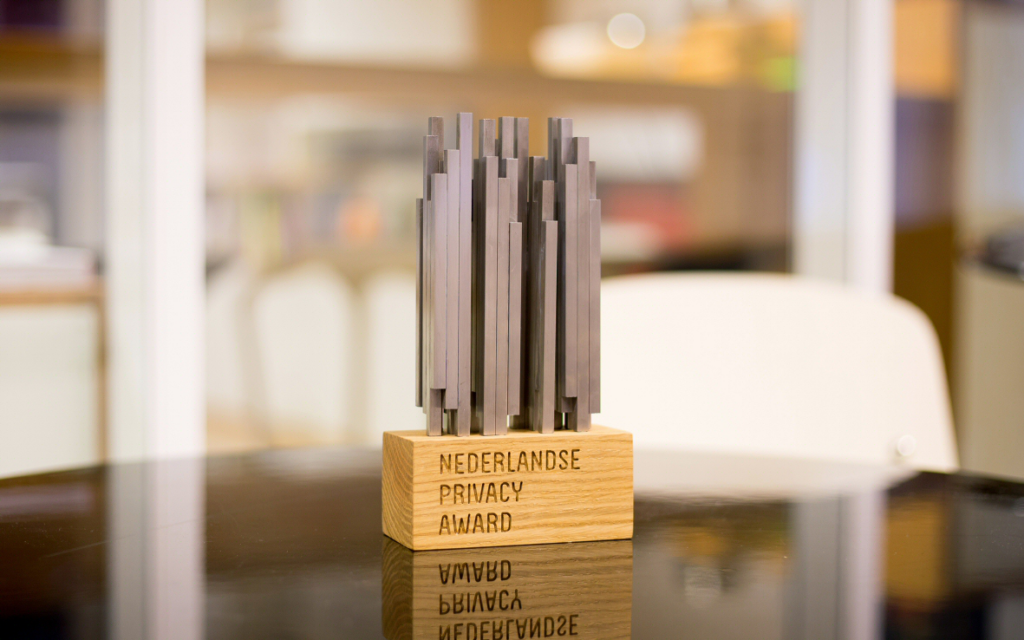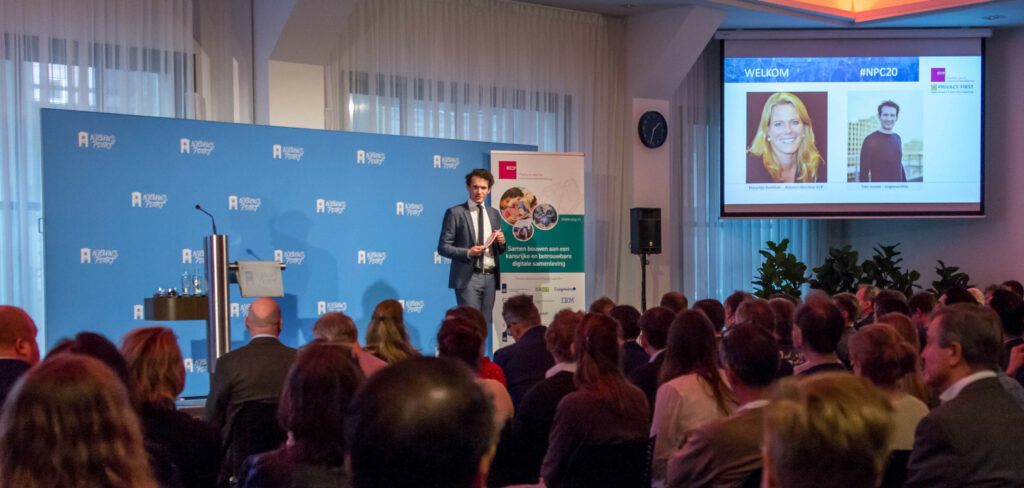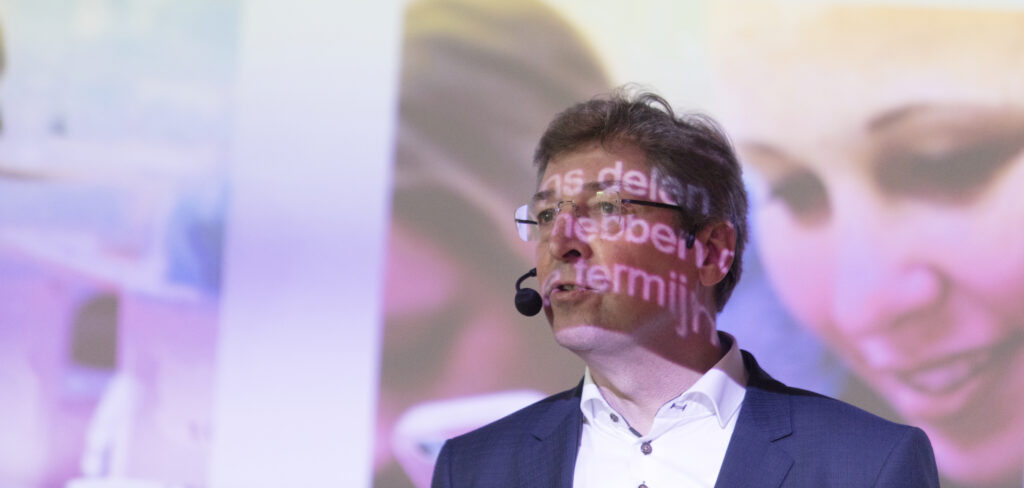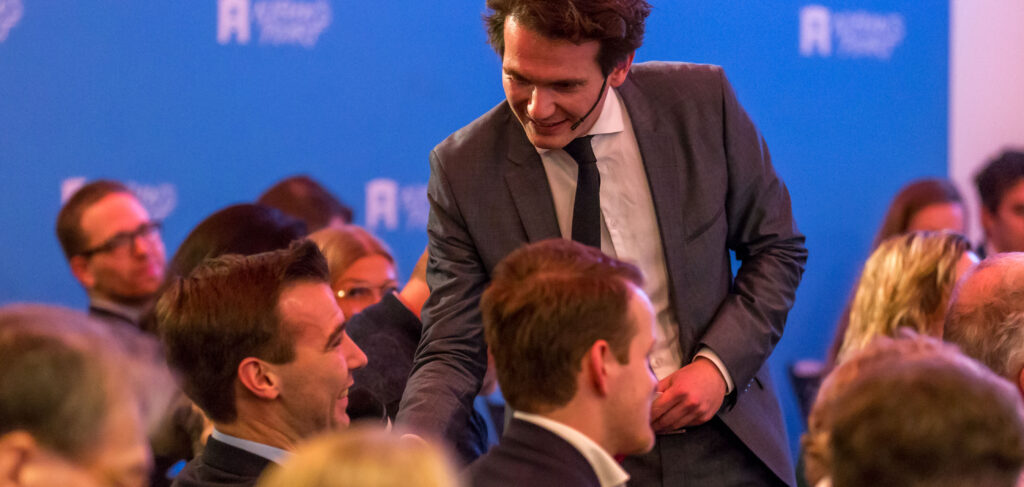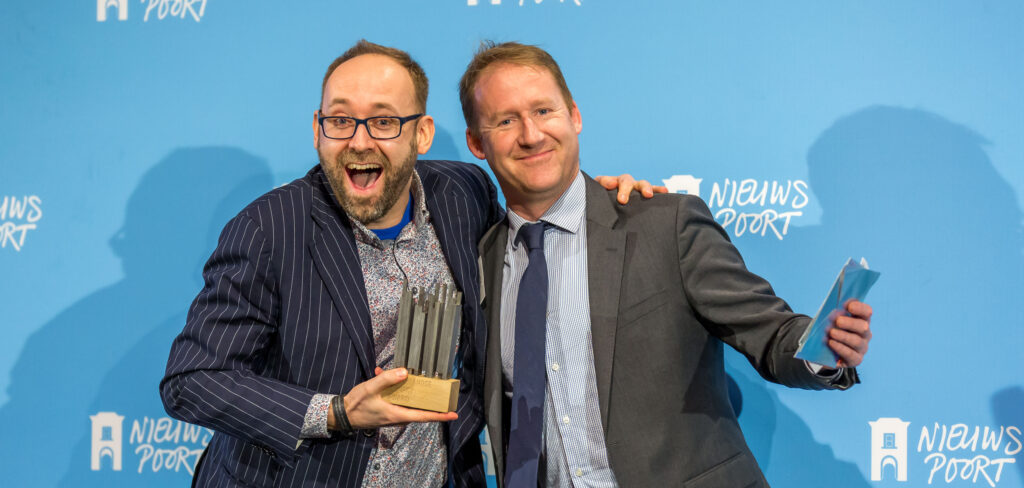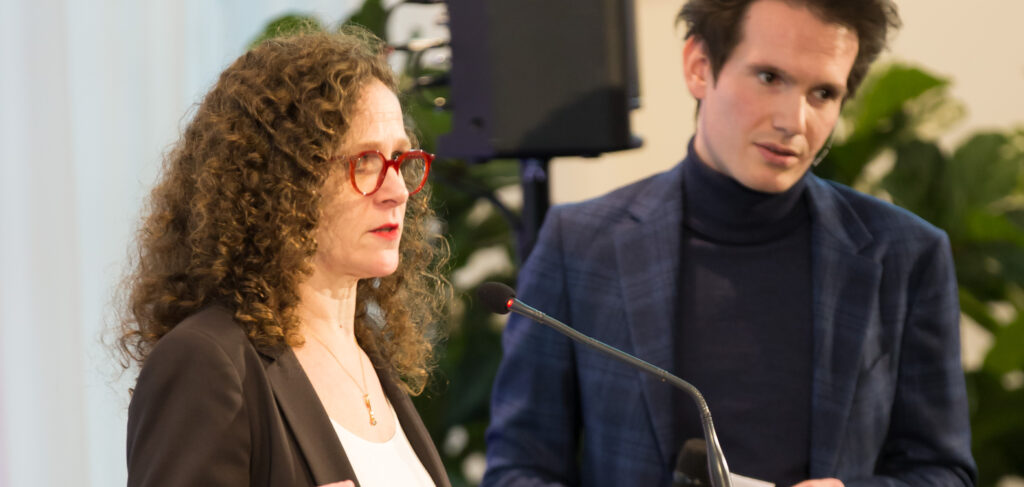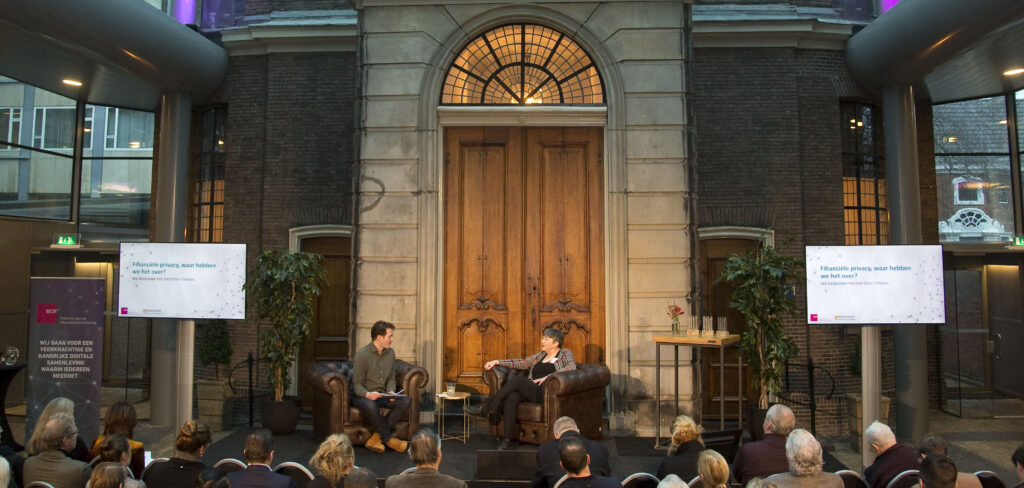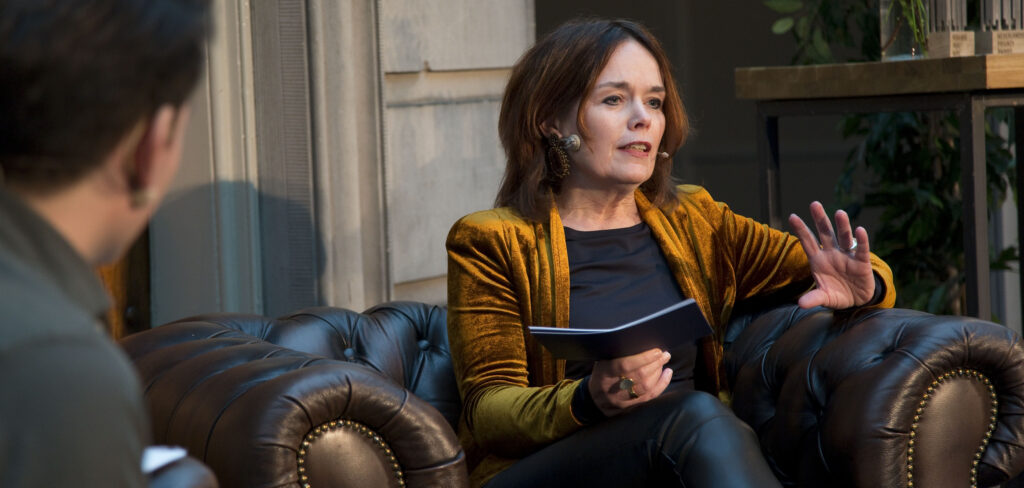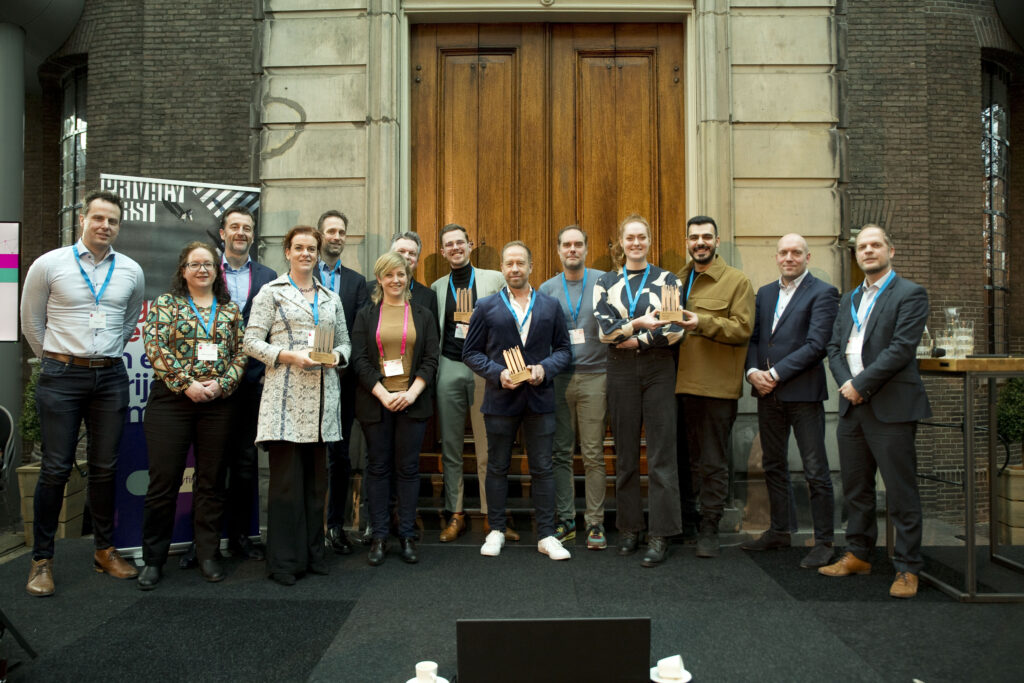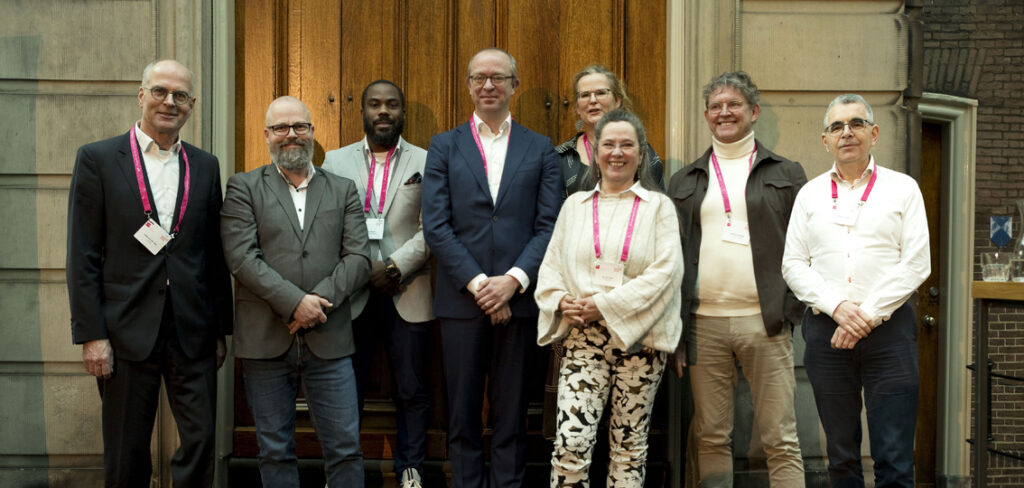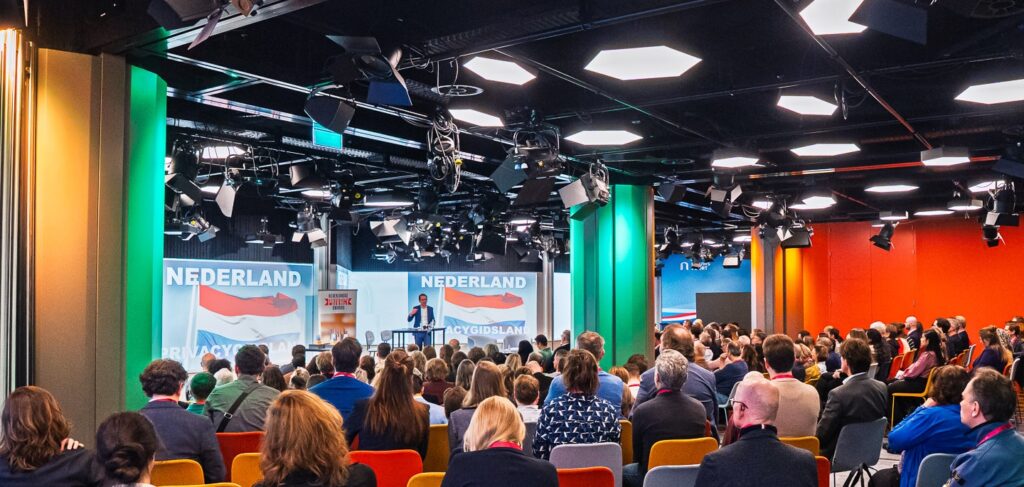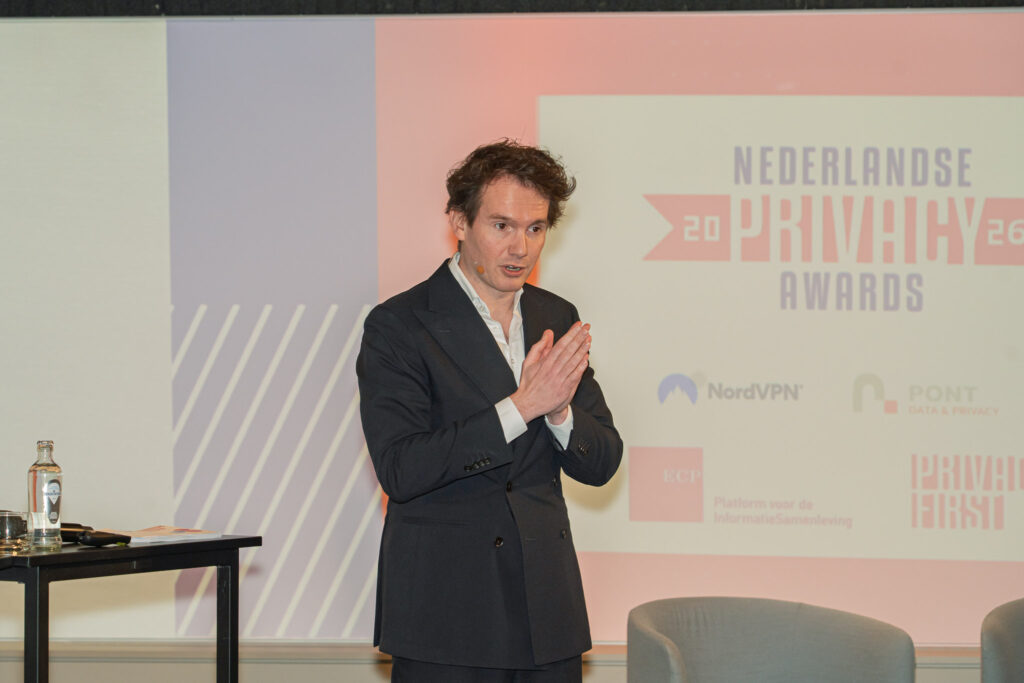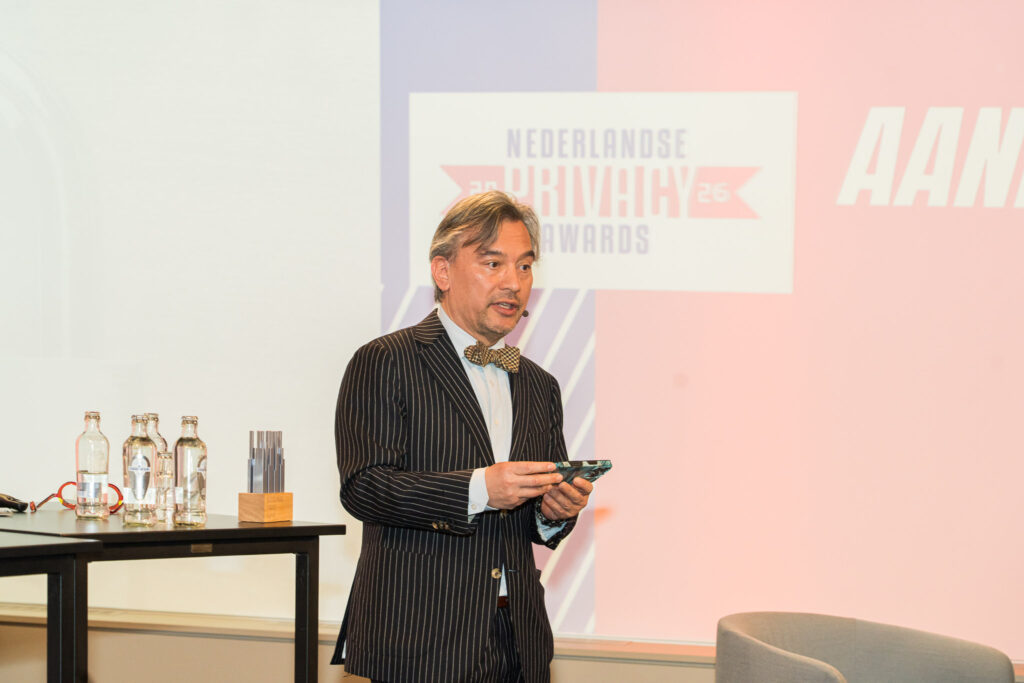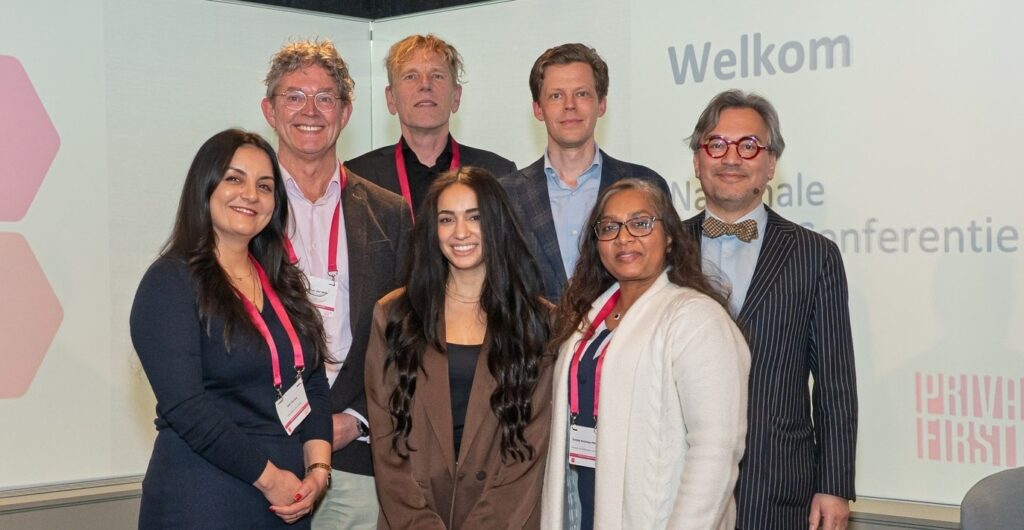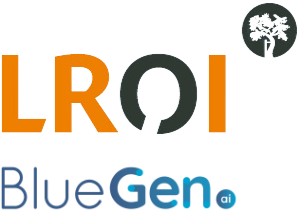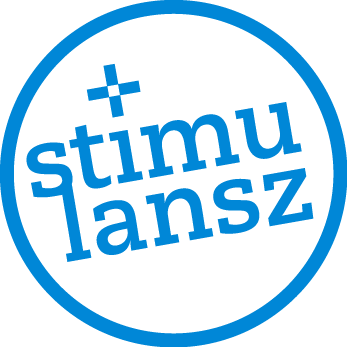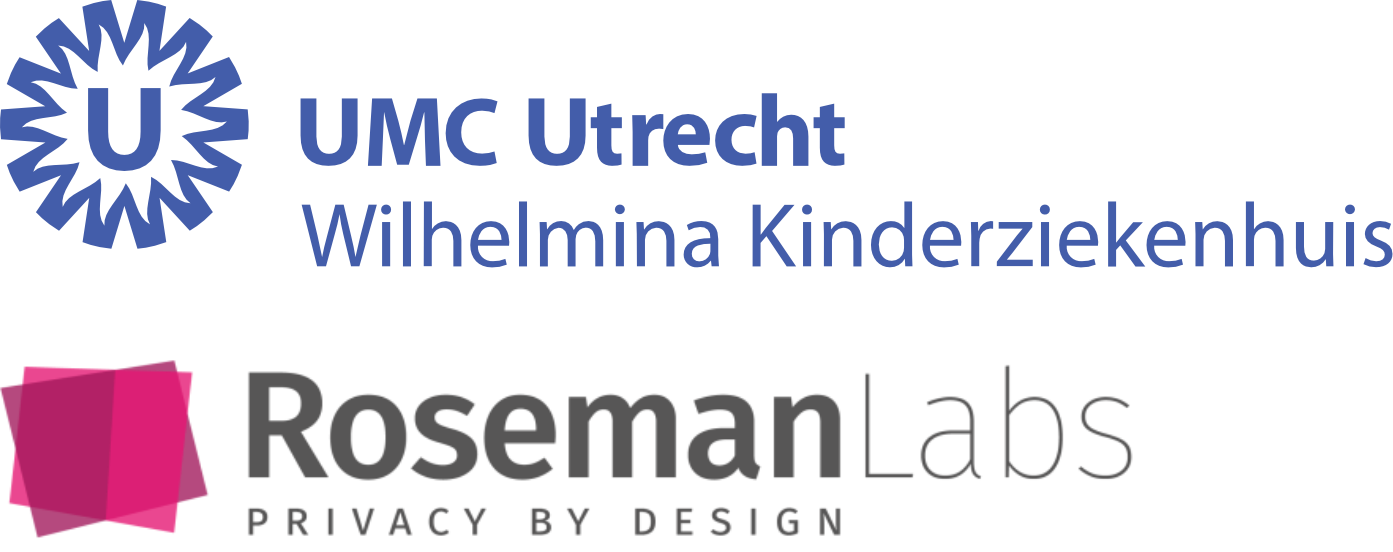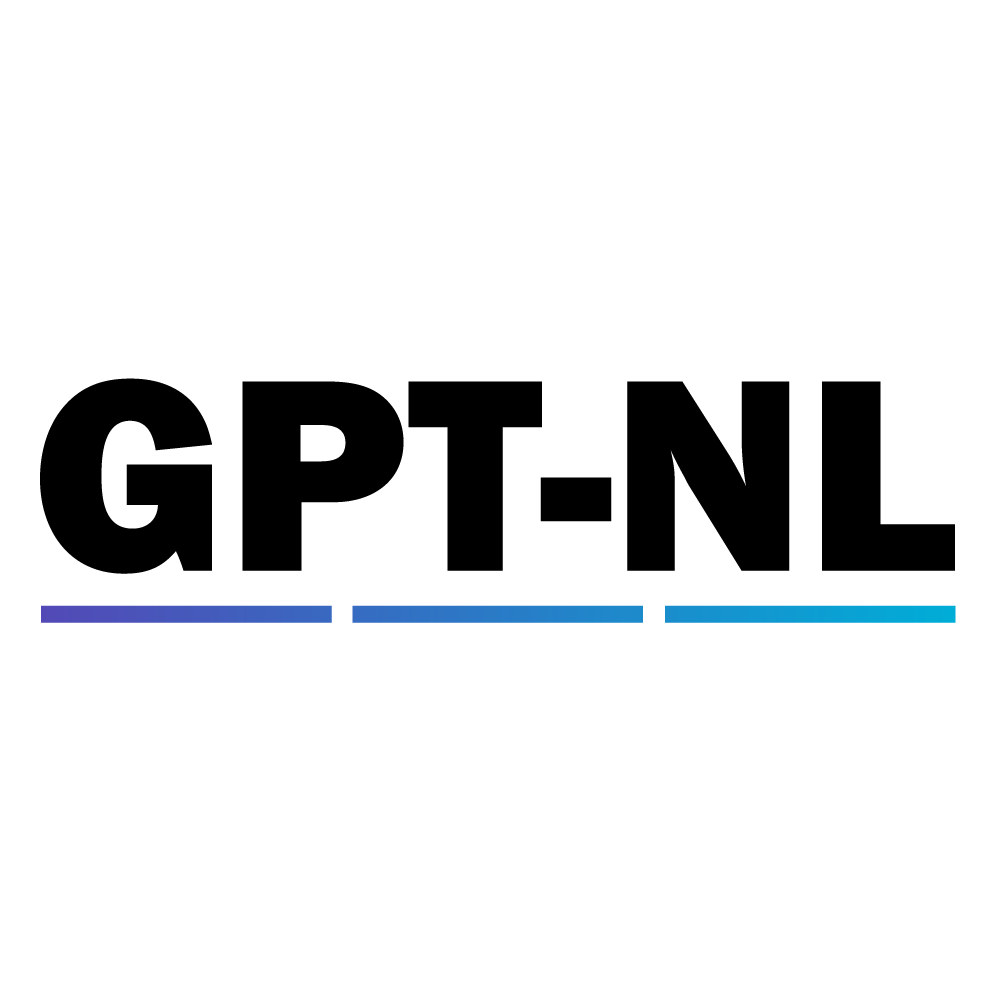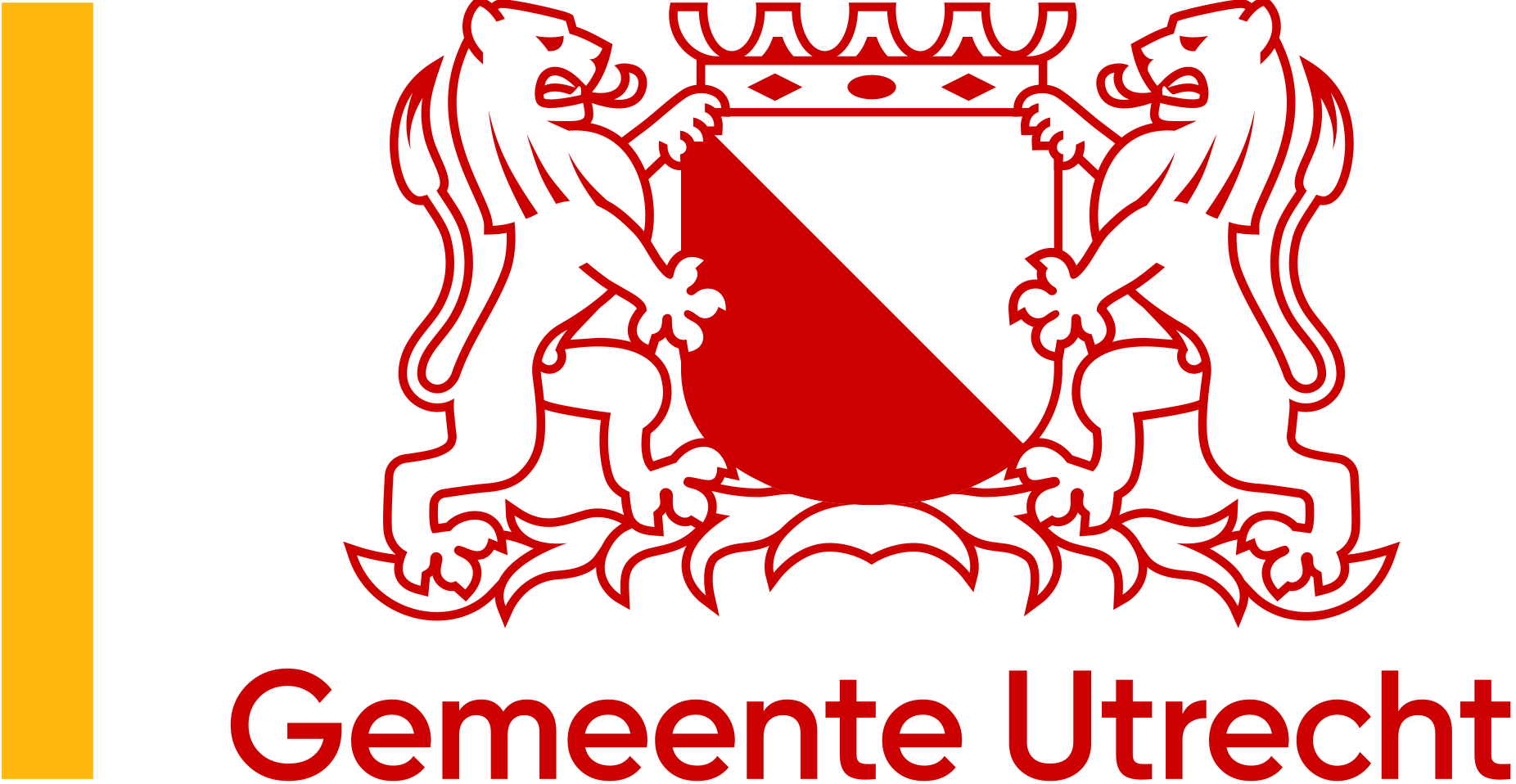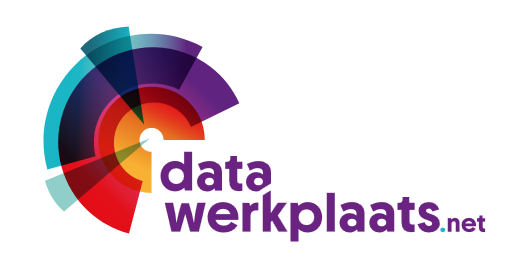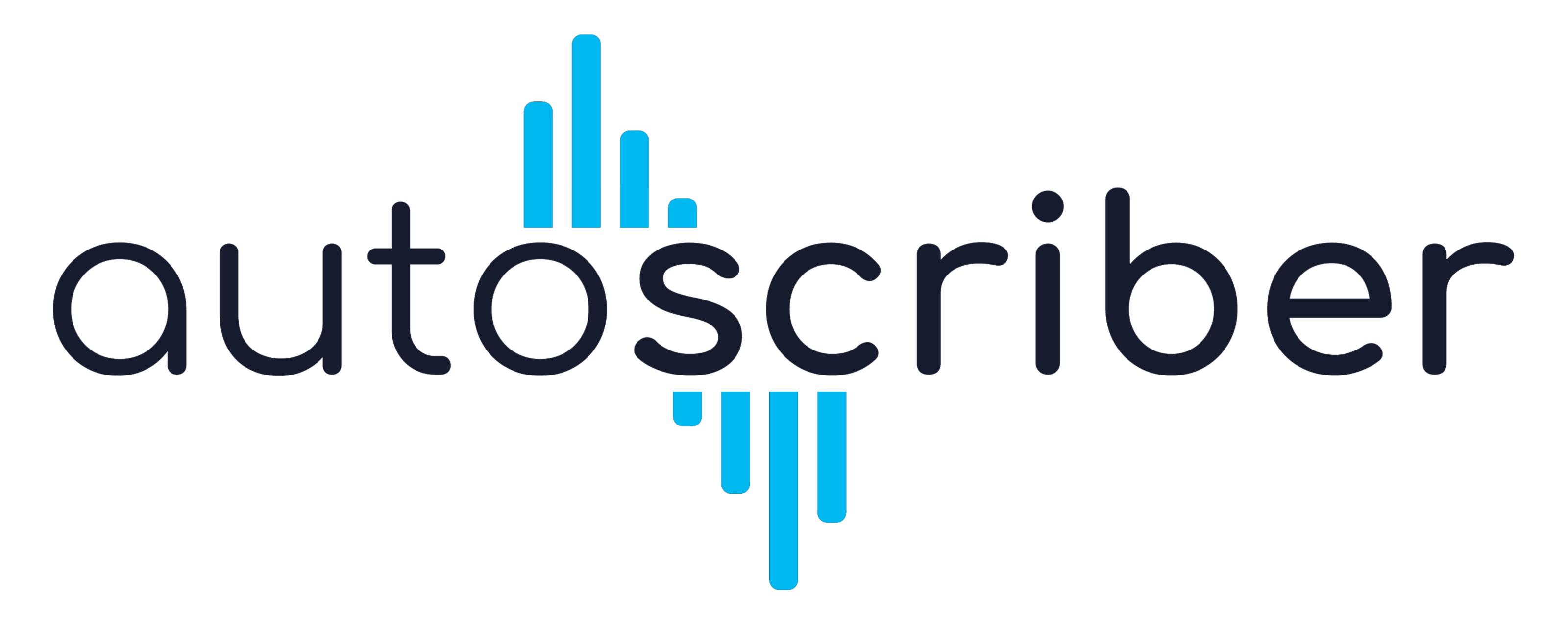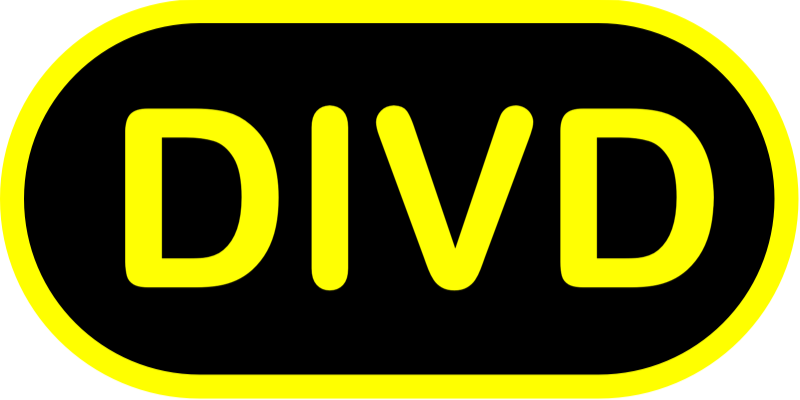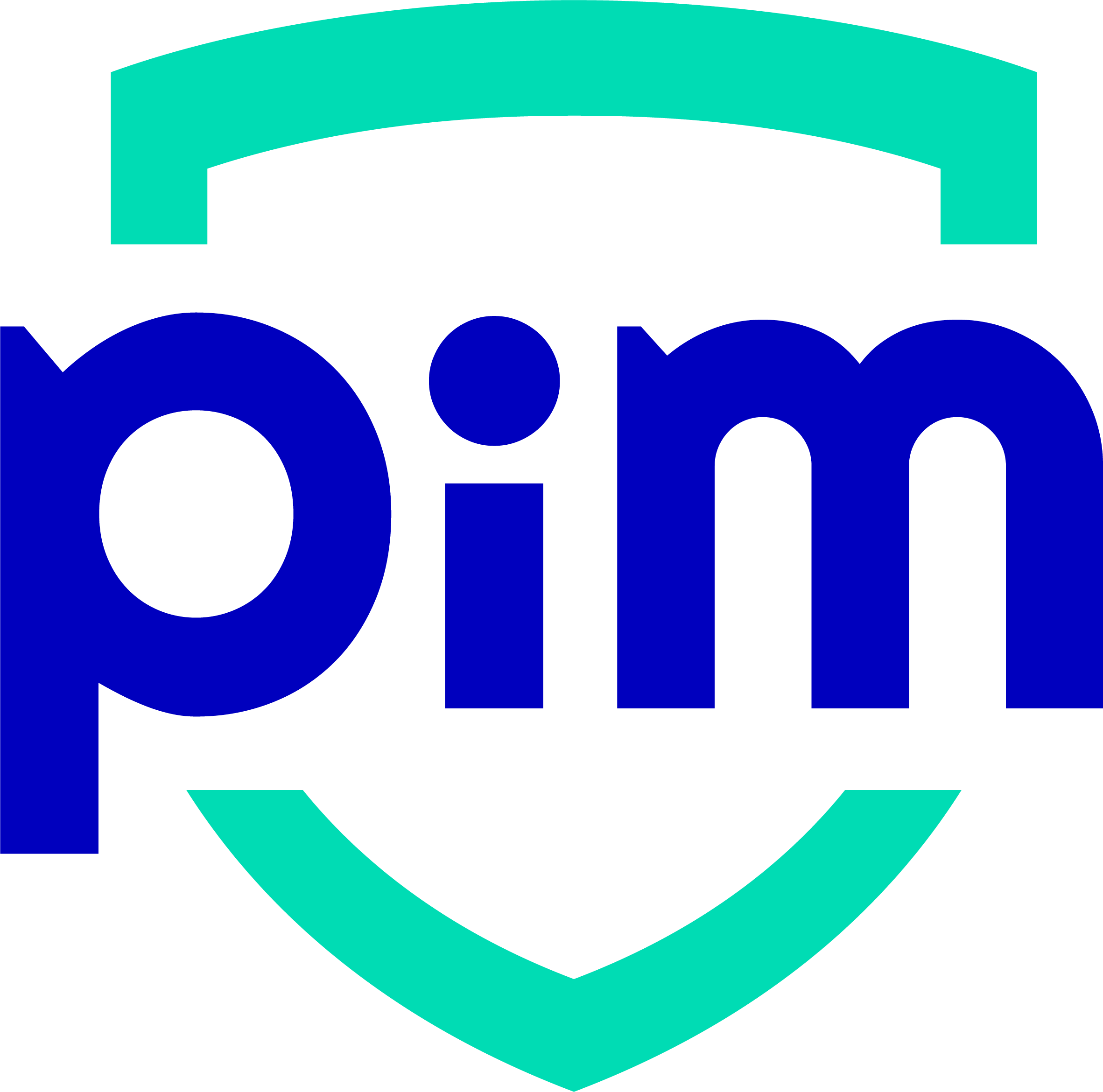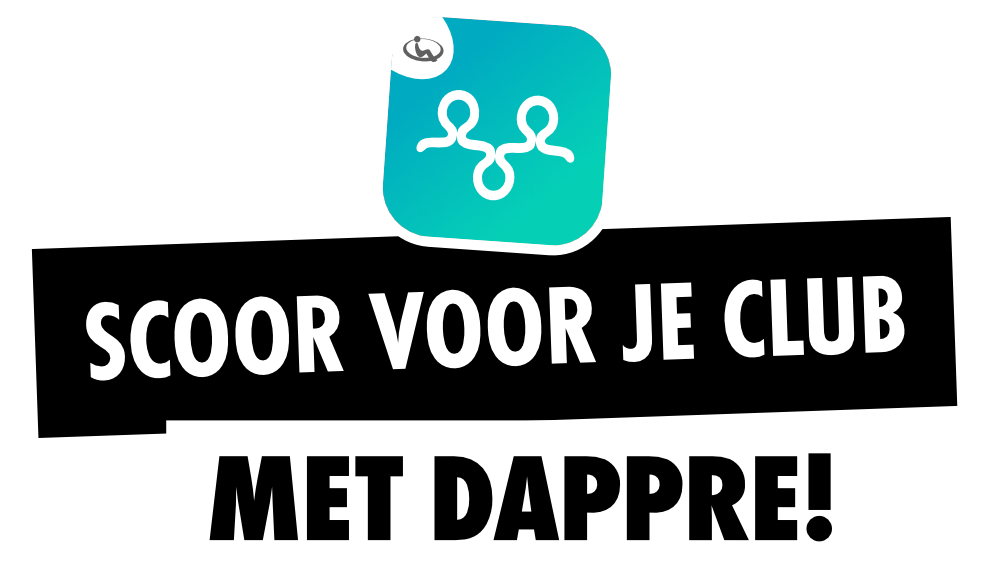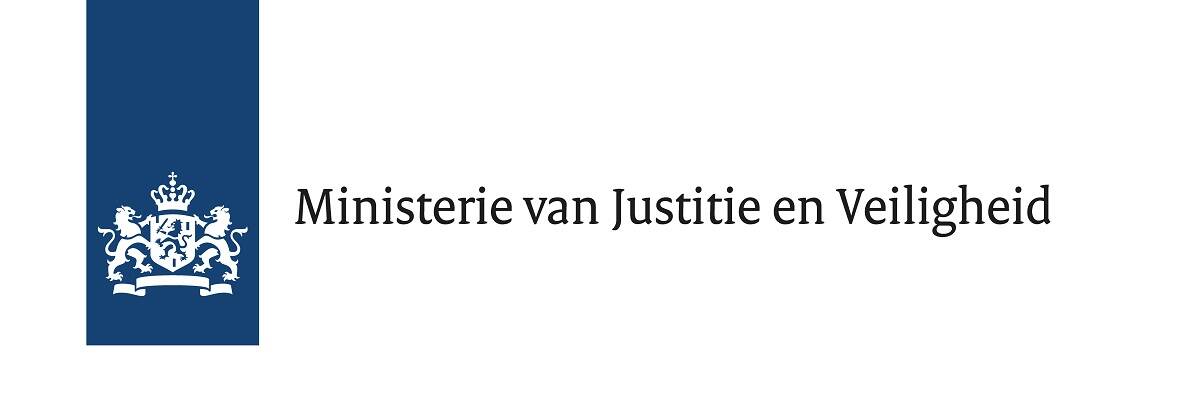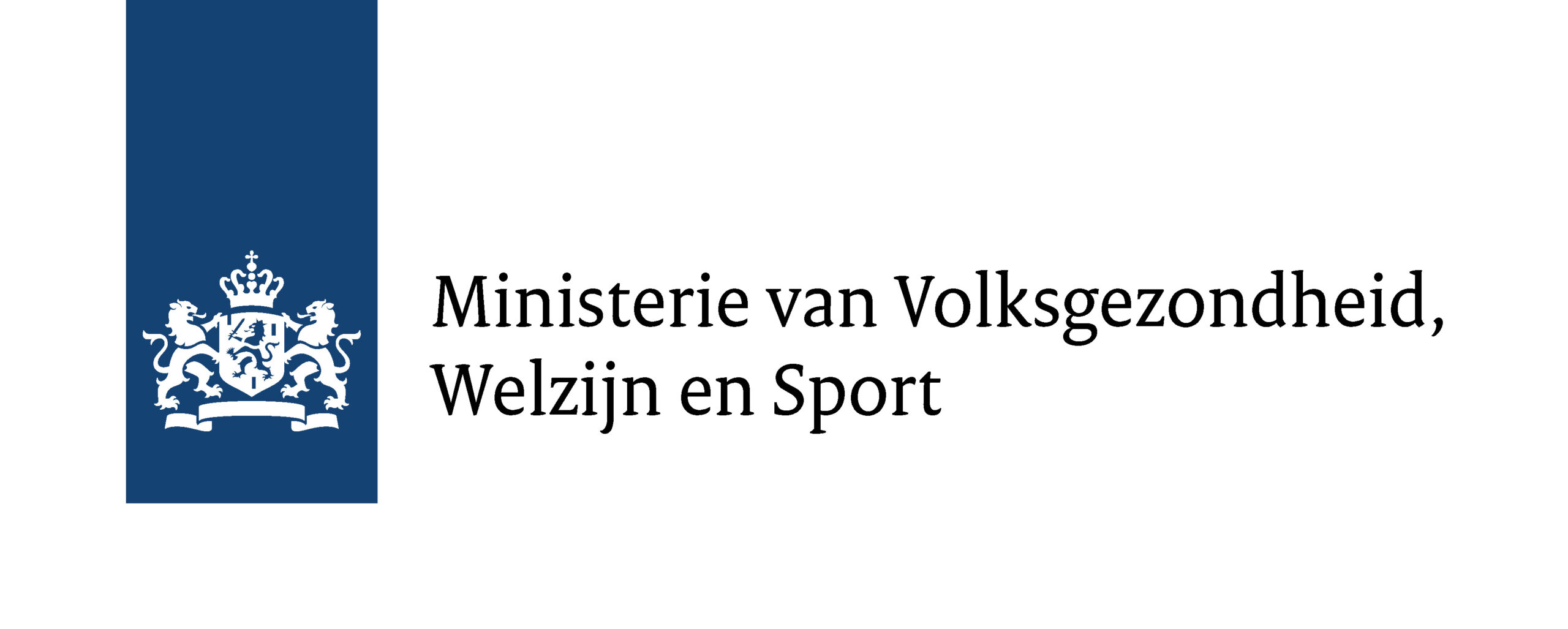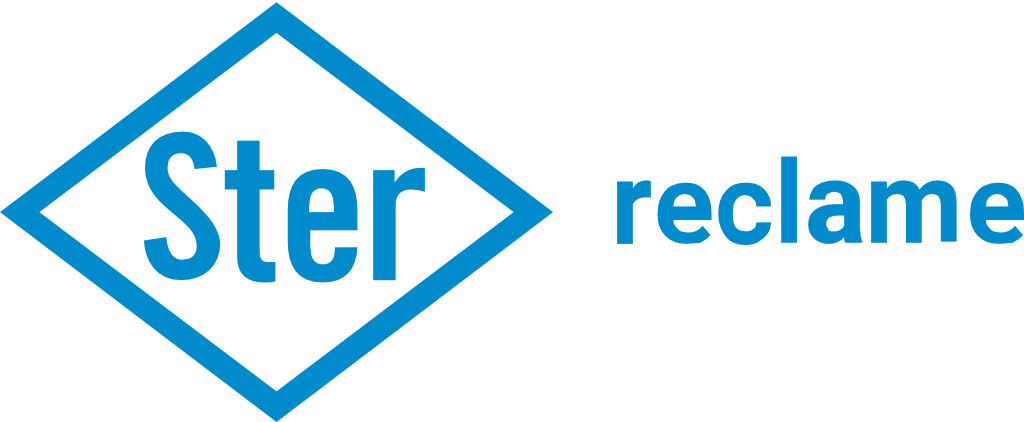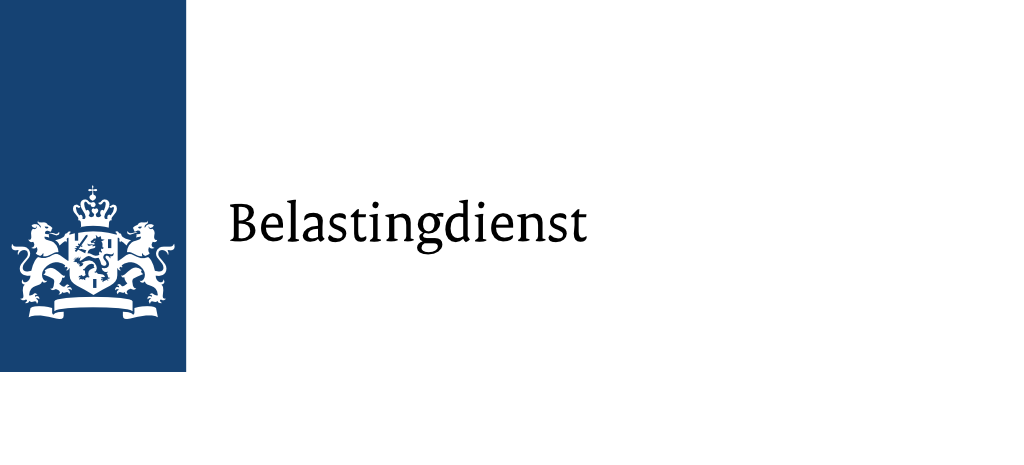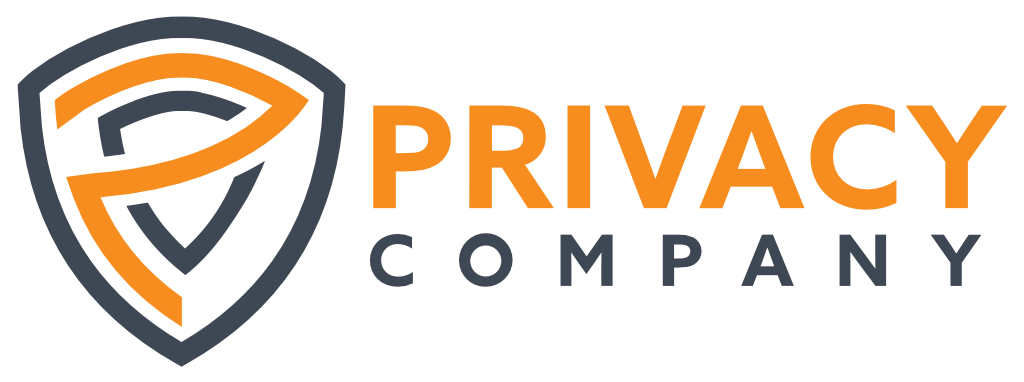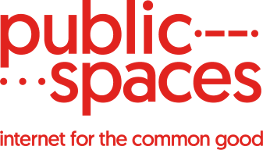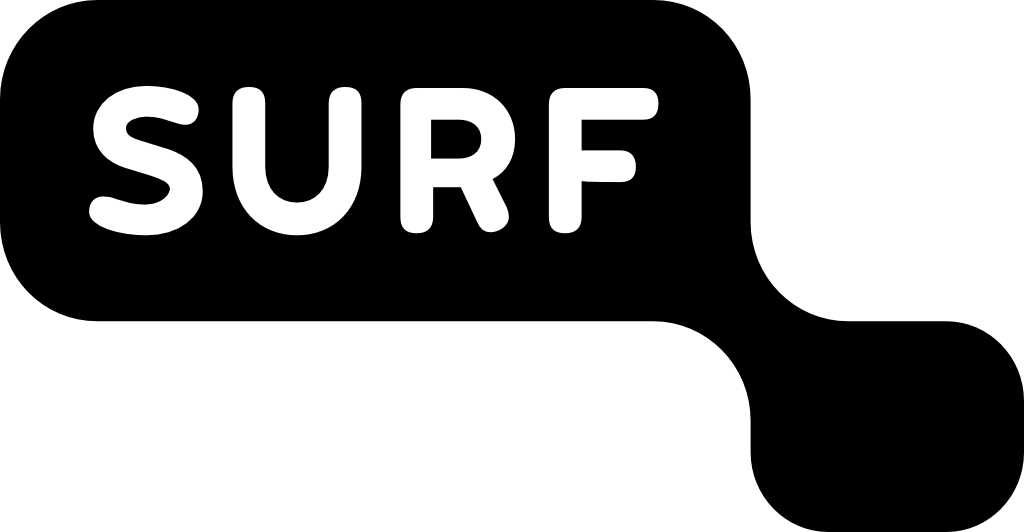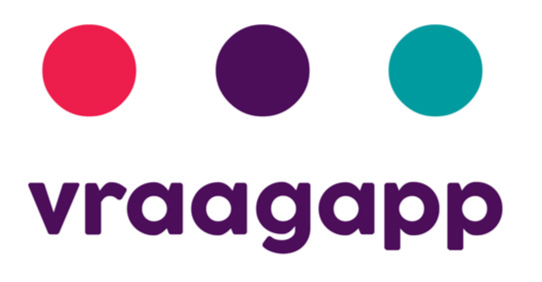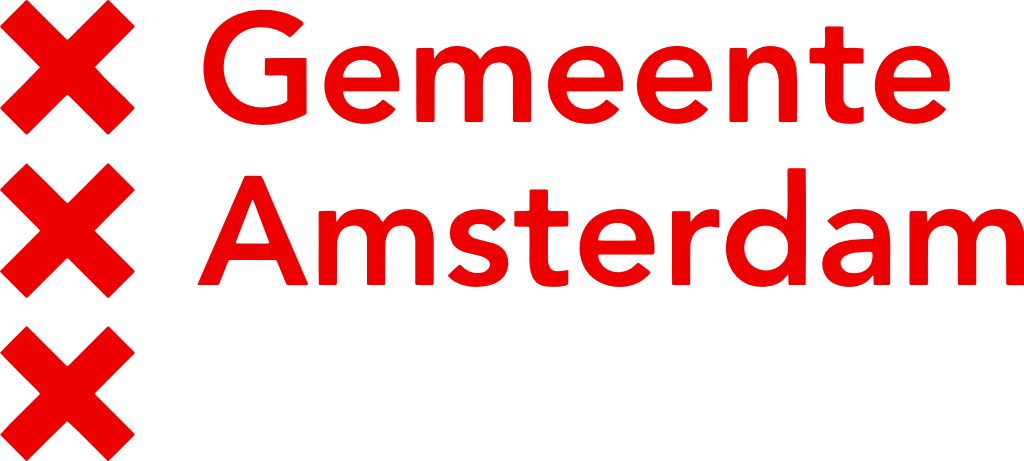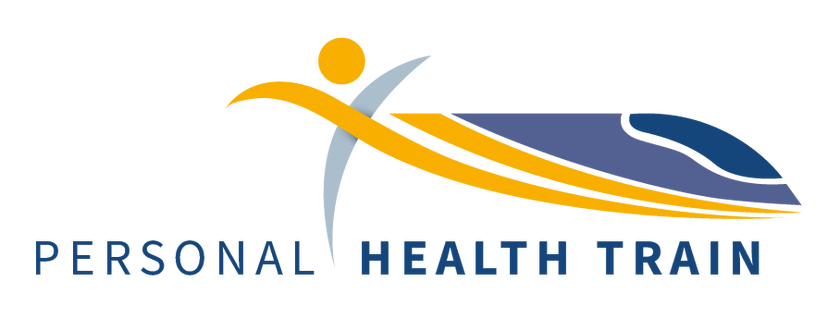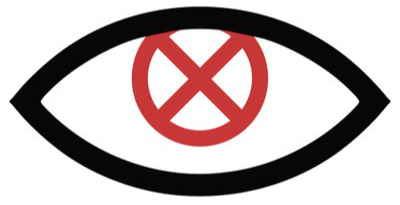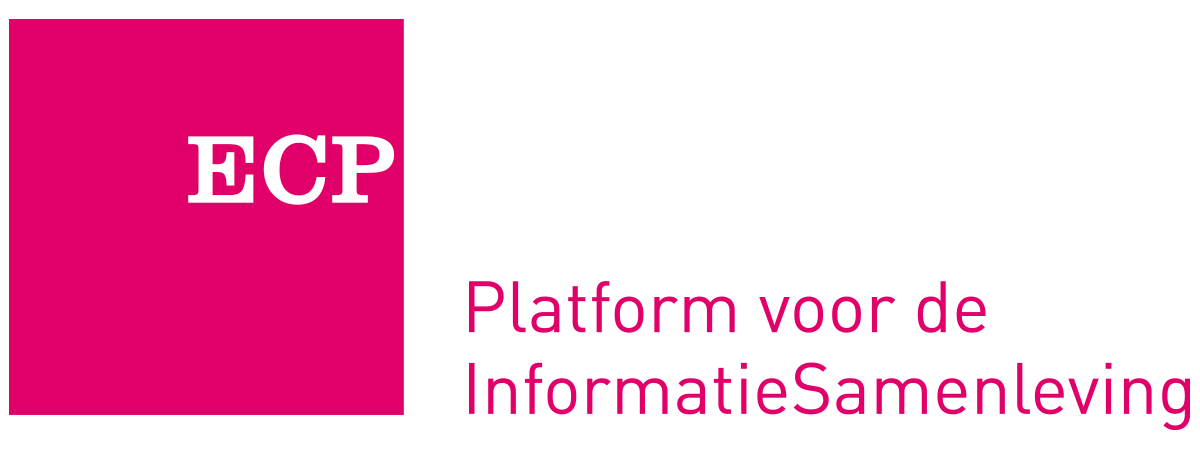Privacy Awards give a podium to companies and governments that see privacy as an opportunity to stand out positively.
The Dutch Privacy Awards offer a podium to organisations that see Privacy as an opportunity to distinguish themselves positively and make privacy-friendly business and innovation the norm. The Awards are presented annually by Privacy First on the European Privacy Day.
Are you developing a privacy-enhancing product, service or concept? Or do you have another initiative that strengthens the fundamental right to privacy in the Netherlands? Then please register via awards@privacyfirst.nl. The checklist for your application can be found here.
All entries will be judged by an expert and independent jury in accordance with the jury rules. Up to four prizes will be awarded annually, partly depending on entries.
At the National Privacy Conference of Privacy First and ECP, the Dutch Privacy Awards 2026 were presented on 28 January. The winners of the Dutch Privacy Awards 2026 are:
- UMC Utrecht & Roseman Labs - NSK data workshop (Engineering category)
- Foundation for the Quality Mark for Journey Recording Systems (Application category)
- TNO, NFI & SURF - GPT-NL (Awareness category)
- National innovation centre privacy-enhancing technologies (Nicpet) (Incentive prize)
The jury nominates entries in the following categories:
- Technology
- Application
- Raising awareness
From businesses for consumers.
Within a company or business-to-business.
Government, healthcare and education.
The presentation of the Dutch Privacy Awards 2026 took place on 28 January 2026 during the National Privacy Conference, organised by ECP | Platform for the Information Society and Privacy First.
Not all (semi-)governmental organisations publish their processing registers on the internet. And when they do, it is often in a format that is difficult to access and search. With Register of processing operations.nl late Publiosa see that there is room for improvement.
Publiosa is not deterred and remains committed to transparency regarding the processing of personal data. The jury of the Dutch Privacy Awards has therefore nominated Publiosa for the Privacy Awards.
The National Registration of Orthopaedic Interventions (LROI) wishes to make its data on various orthopaedic treatments available for scientific research in a privacy-friendly manner. The LROI is therefore collaborating with Bluegen.ai which converts the pseudonymised data in the register into synthetic data. This makes the personal data used even less traceable, without compromising the validity of the research.
The jury of the Dutch Privacy Awards appreciates the responsibility the LROI feels for the personal data in its care and its chosen course of action. The jury has therefore nominated the LROI and Bluegen.ai for the Privacy Awards.
Stimulansz offers local authorities expertise in the social domain with practical training courses and advice. She developed the Privacy Quartet for her privacy awareness training courses.
This super-simple intervention makes privacy literally tangible for participants, and the game format ensures that initial resistance disappears and participants are more open to taking privacy and the AVG seriously. The jury therefore nominated Stimulansz for the Privacy Awards.
The NSK (National Child Abuse Reporting Tool) data workshop offers a privacy by design solution to an urgent social challenge: the early detection of child abuse. By processing sensitive patient data exclusively in encrypted form using advanced cryptographic techniques, the data workshop enables hospitals to learn together and improve the quality of care without infringing on the privacy of children and families. The solution strengthens confidence in data-driven healthcare improvement by focusing on purpose limitation, consent and complete control for participating institutions.
In addition, the NSK data workshop stands out for its innovative, scalable and sustainable character. The technology of Roseman Labs enables in-depth analyses without access to traceable data and integrates seamlessly with existing research environments such as the Digital Research Environment (DRE). This allows healthcare institutions to collaborate independently and set up comparable data workshops within a few months. The application convincingly demonstrates that privacy protection and social impact can reinforce each other and serves as an inspiring example for secure and responsible data exchange within the future European Health Data Space.
The jury appreciated the combination of technical innovation, social relevance, practical applicability and exemplary value for other sectors. The NSK data workshop meets all the essential criteria: societal urgency, technical excellence, legal soundness, practical implementability and future-proof exemplary value.
The NSK data workshop convincingly demonstrates that privacy-friendly innovation in healthcare is not only possible but can also be transformative, earning it a Dutch Privacy Award.
The Quality Mark for Journey Recording Systems offers business drivers (approx. 250,000 out of a total of 1.12 million) independent and reliable trip records for the 500km statement. The foundation certifies approx. 80% of all suppliers on the market that meet the requirements of the tax authorities and guarantee privacy protection. Private journey data can only be viewed by the employee himself via a “digital safe”, which means that employers cannot view private journeys made with a business car.
The Quality Mark for Ride Registration Systems illustrates that privacy protection is not only a legal duty, but also a quality feature that strengthens trust and innovation. The jury of the Dutch Privacy Awards praises the structural and proven contribution of this initiative to the protection of personal data in the mobility chain and sees in this hallmark a guiding example for privacy assurance in data-rich work environments.
The jury appreciated that the label makes a concrete and demonstrable difference in a context where privacy, surveillance and business interests are often in tension. The solution addresses a fundamental vulnerability: the possibility of employers gaining insight into employees' private journeys via business vehicles. The methodology used by the hallmark - where private journeys are only visible to the employee himself via a so-called digital safe - offers a technically and organisationally elegant balance between control and autonomy. The jury therefore rewards Stichting Keurmerk Ritregistratiesystemen with a Privacy Award.
GPT-NL is the first Dutch Large Language Model (LLM), developed with government funding by TNO in collaboration with the Netherlands Forensic Institute (NFI) and SURF. The model is trained on original, high-quality Dutch texts from government bodies, libraries and publishers, rather than on data randomly scraped from the internet. GPT-NL is the first LLM worldwide that demonstrably complies with the GDPR through radical privacy by design: all personal data of non-public individuals are structurally removed or anonymised in advance. In addition, GPT-NL is fully transparent (as the only provider worldwide) about training sources, respects copyrights, and has safeguards tuned into its output for privacy rights assurance. With its - also unique - licensing model where content providers are fairly compensated, GPT-NL is not only a figurehead for privacy by design but also for respectful and legally correct handling of copyrights and the intellectual property of content providers. The model is suitable for trust-critical applications in the public sector, education and healthcare sectors.
Positioning itself at the intersection of privacy, technology and sovereignty, GPT-NL marks a milestone in the development of responsible artificial intelligence in the Netherlands and Europe. GPT-NL demonstrates that responsible, AVG-compliant, copyright-correct and transparent LLM development is indeed possible. The jury of the Dutch Privacy Awards considers the project a guiding example of how data ethics, innovation and public values can be brought together in the practice of AI development. The jury therefore rewards GPT-NL with a Privacy Award.
The National innovation centre privacy-enhancing technologies (Nicpet) caught the jury's eye because it clearly contributes to the development of privacy and data protection in the Netherlands on several fronts.
Nicpet performs a special bridging function by connecting public applicators and private participants in one shared community of practice around privacy and data protection.
Public applicators bring the perspective of public values, legitimacy, democratic accountability and enforceability. They know where regulations chafe in practice and what risks citizens actually experience.
Private participants bring innovation power, technical expertise and product or service knowledge, ensuring that solutions do not remain abstract but connect to concrete systems, platforms and data flows.
Nicpet makes an impact by structurally bringing these perspectives together in a safe working platform, where collective learning takes place. In doing so, the emergence of de facto practice standards encouraged.
This enhances interoperability, prevents fragmentation and ensures that solutions are recognisable and consistent for citizens, regardless of which public agency or private provider is involved.
It is precisely this role as a neutral, public meeting place where interests, knowledge and responsibilities of public and private parties come together on an equal footing that makes Nicpet distinctive and particularly relevant for the further professionalisation of privacy in the Netherlands. Nicpet therefore deserves a Dutch Privacy Award (Aanmoedigingsprijs).
The City of Rotterdam is committed to reducing developmental delays among two- and three-year-old toddlers. Research shows that these arrears are hardly caught up in primary education. More than 1,200 toddlers do not participate in pre-school education. It is up to the municipality and its partners (including the Centre for Youth and Family) to gain insight into the problem and adjust quickly.
With the encryption technology of Roseman Labs allows datasets from more than 100 nurseries to be securely linked and analysed without revealing the raw data.
The collaboration between the Municipality of Rotterdam, Roseman Labs, the Centre for Youth and Family and the day-care centres demonstrates that innovative privacy technologies can be used effectively to address societal challenges, while maintaining privacy protection.
A municipality processes a huge amount of citizens' personal data. Together with design firm Pattern Legal Design and law firm De Roos, the Municipality of Utrecht took a big step towards making this truly transparent. Taking the interests of citizens as the starting point, the sensitivity and impact of the processing, among other things, were considered. Then a very appealing and accessible design was designed to help citizens quickly and easily understand what happens to their data.
The insight offered to citizens and the scalability of this concept appeal to the jury: other municipalities can follow this example, which will help citizens gain quick and accessible insight into what is happening with their data.
The training 'Discussion leader Data Ethics' from Philosophy in action deals with the ethical aspects of the use/processing/application of data (and therefore personal data). In the course, privacy is considered more broadly than just legal. Privacy is considered an important 'value' for the organisation and, of course, the data subjects. With this training, Privacy Professionals, including FGs and POs, learn to put themselves in other perspectives and arrive at constructive discussions with other disciplines.
The jury of the Dutch Privacy Awards believes that this course fills a gap in the proper focus on privacy protection within organisations. Privacy as a value and the related constructive discussions between all relevant disciplines increases support and contributes to creativity of solutions.
Achieving integrated health promotion requires having person-level insights with data from different institutions, domains and disciplines.
In the project GERDA (Integrated Regional Data Infrastructure Achterhoek), these insights are generated, while maintaining confidentiality and data integrity.
An important role in the project is played by the company's software Linksight.
The jury of the Dutch Privacy Awards considers this an interesting development that promotes quality of care. GERDA's representatives report an interplay of privacy-enhancing measures such as anonymising data, not allowing analyses with too small a data set, and contractual agreements based on risk analyses.
PrivacyDetect is a scanner for redundant personal data that may be hidden in company records in all kinds of CVs, copies of passports, e-mails and so on. Superfluous personal data might include double storage of personal data or personal data after the retention period has expired. Employees are informed of the scan results, with the responsibility of individual employees being the starting point. With PrivacyDetect Watchful targets small and medium-sized enterprises and therefore keeps the product affordable compared to alternatives and pays attention to encouraging behavioural change.
The jury of the Dutch Privacy Awards believes that Watchful can make a substantial and practical contribution to the privacy improvement of corporate records and therefore nominates Watchful for the Privacy Awards.
Autoscriber is a software solution that allows medical professionals to record the consultation. The artificial intelligence in the software understands what is being discussed and automatically prepares a medical report. This saves the doctor time and benefits the doctor-patient conversation. The software is deployed by dozens of healthcare institutions and is currently being integrated with the largest electronic patient records in the Netherlands. Great attention is paid to privacy protection, such as deleting the recorded conversation as soon as the doctor has approved the proposed text.
Artifical intelligence can be a threat to privacy. The jury of the Dutch Privacy Awards finds that Autoscriber's approach shows that the developers are aware of this and act accordingly.
With Pathways Privacy-aware Leadership directs the RijksAcademie voor Digitalisering en Informatisering Overheid (RADIO) focuses on the target group of managers. Without having to dive into theory, managers learn about privacy at work and can take informed actions. This is achieved with practical action lists for six situations.
The overview offered to the manager and the background information for managers is innovative and that appeals to the jury, even though this initiative is still in the development phase. The jury of the Dutch Privacy Awards therefore awarded the RijksAcademie voor Digitalisering with the Encouragement Award, hoping to give this initiative a boost to give.
BlueGen.ai has developed software for generating synthetic data, a privacy-safe variant of personal data. This synthetic data looks the same, behaves the same, contains the same static properties, patterns and trends, but cannot be traced back to an individual from the original dataset.
The use of synthetic data eliminates the need to work with personal data for analysis, application testing or training Machine Learning models. Pseudonymisation of data with residual risks of traceability becomes unnecessary and the number of privacy breaches and breaches decreases. All this contributes to better privacy protection and the jury therefore nominates BlueGen for a Dutch Privacy Award.
With Databoss Inventive Games has developed a dynamic and strategic privacy card game. Organisations can use Databoss as part of awareness campaigns.
The jury judges the game as fun enough to really play and educational enough to actually contribute to privacy awareness. The jury therefore nominates Databoss by Inventive Games for a Dutch Privacy Award.
DIVD is an organisation of people who work unpaid to make the internet permanently safer. DIVD proactively informs citizens whose confidential information has been hacked, so that they can act in time by changing passwords, for example. For businesses, too, DIVD proactively and structurally searches for cyber threats that expose vulnerabilities in organisations. Once such a threat is found, the organisations at risk are informed so that measures can be taken.
The jury believes that the drive, the protective nature for all involved and the fact that this is done unpaid to permanently improve the Internet world, is more than enough reason to nominate DIVD for a Dutch Privacy Award.
Linksight enables organisations to enter into data collaborations that strongly implement various requirements of the AVG. Unique is the combination of the use of homomorphic encryption, multi-party computation (MPC) and the governance interface designed by Linksight. In that interface, agreements that partners make with each other in advance and the requirements of the AVG (think entering into a processor agreement) are technically monitored. If in practice the agreements or legal limits are in danger of being violated, the data analysis is aborted. This is a solid safeguard and privacy by design par excellence. Finally, it is also innovative that Linksight itself does not receive any personal data at all from cooperating parties.
Linksight's motto is "Share the insight, not the data" and they live up to that. Given the above, the jury nominates Linksight for a Dutch Privacy Award.
Oasys Now has developed a platform on which patients worldwide can participate more safely and quickly in clinical trials. For that, the very specific requirements to participate in a particular trial, linked to genetic data and profiles of patients who want to be considered for participation. This provides huge acceleration for drug development; a quick and good match can make years of difference.
This obviously benefits patients with chronic or rare diseases, but they retain 'ownership' of their own medical personal data and it is their own decision whether or not they want to participate and for how long. Patients can per trial indicate, in close consultation with their own treating physician, which trial could possibly be useful to them. Oasys Now is a young company that is still at the beginning of developments. Given all this, the jury awards Oasys Now the Aanmoedigingsprijs at the Dutch Privacy Awards 2024.
Privacy Simulation is a game that teaches your colleagues how to handle personal information appropriately in a fun way. They learn how an organisation can guard against data breaches and recognise crisis situations.
Privacy Simulation is a tool to raise awareness about privacy in organisations in a playful, interactive and original way with two levels and offers ample opportunities to supplement content and with maturity levels. No automatic click-through questions, like many e-learnings, but real interaction and a beautiful interface. This tool makes strengthening the organisation in the field of privacy attractive and thus contributes to a higher level of privacy in organisations. The jury therefore declared Privacy Simulation the winner of the Dutch Privacy Award 2024 in the Awareness category.
Proofme ID is an innovative and secure platform for digital identification and transactions. The use of blockchain technology contributes to user security and privacy, as data is stored directly on the user's device. This means users retain full control and ownership of their personal information, which is an important aspect in today's digital age.
Proofme ID's functionalities, such as passwordless login, secure signing of files with a personal identity, verifying age without sharing passport data, and risk-free digital identification, make it a versatile tool. These features can contribute significantly to reducing the risks of identity theft and fraud. Given these features and its focus on user privacy and control, the jury nominates Proofme ID for a Dutch Privacy Award.
Public Transport Groningen Drenthe is committed to cooperation between government and transport providers to ensure a social and inclusive transport offer in the region. Effective cooperation requires privacy-friendly insight into travel needs and travel behaviour of relevant target groups. Collaboration on personal data is especially sensitive when a vulnerable group is involved, such as Wmo-indexed people.
In collaboration with Roseman Labs, Public Transport Groningen Drenthe has been working to find the best available privacy protection for analysing travel behaviour without access to travellers' personal data from multiple transport organisations. This in an environment where this type of analysis has not yet been applied or is limited. The jury therefore declared Public Transport Groningen Drenthe the winner of the Dutch Privacy Awards 2024 in the Application category.
Jet-Stream is a streaming service that has managed to turn protecting viewers' privacy into a revenue model. The software they have developed is innovative and unique because it does not send advertisers personal data from these viewers, but only anonymised data and data on context of the stream watched. Because there is no need to ask for permission, and the AI they have developed does make it possible to really target advertising, this 'contextualised advertisement' ultimately yields even more ad revenue than the usual personalised ads based on individual profiles of viewers.
Jet-Stream's operations are steeped in privacy awareness. For instance, they have set up their own cloud that is 100% Dutch, employ only EU employees, and the company is entirely Dutch-owned. Furthermore, they use no cookies and no trackers in their software. Moreover, the video player they developed themselves does not share any generated data with their customers. The jury therefore declared Jet-Stream the winner of the Dutch Privacy Award 2024 in the Technology category.
Anonymising information for disclosure also leads to major implementation complications for public and private parties. The innovative AI software from Anonimizer (from Bolesian) enables fast and automatic anonymisation of large quantities of documents, but also of photos and even videos, in very high quality. It can be applied independently of in-house infrastructure, uses machine learning and knowledge technology.
Anonimizer offers a practical solution for governments but also private parties to comply with privacy law.
The application and practical uses lead to frequent use of tooling in further anonymising personal data. Due to its low-threshold nature, organisations will move more quickly to use it. As a result, more and more personal data will be anonymised for processing which will increasingly safeguard privacy.
The jury considers Anonimizer an important initiative that can serve as an example for other organisations, both public and private, on how to anonymise documents and privacy-sensitive data efficiently and privacy-proof. Therefore, the jury awards Anonimizer a Dutch Privacy Award.
Hacks and data breaches are increasing and the consequences are huge. That is why Data leak a cyber card, which lists all cyber incidents at Netherlands-based organisations that have hit the media. Whether they are data breaches, (D)DoS attacks or hostage software, they are all listed.
Through Cybercard, more insight and transparency will be created, helping to prevent more companies and organisations from becoming victims.
Under privacy laws, as a charity you are only allowed to collect personal data that is strictly necessary to achieve a legitimate purpose. Donor Interests Foundation uses its website to make clear which personal data is to be shared by a donor and what it is used for by the charity. This makes privacy part of the choice process donors go through when selecting the charity they want to support.
Donateursbelangen was nominated by the jury for a Dutch Privacy Award because they contribute in a positive way to the privacy awareness of donors. In addition, their database ensures that charities are critical of what personal data they collect, for what purpose and the degree of transparency around it.
Privacy at school is working on a 'Data Protection Impact Assessment (DPIA) for 'watch-along software', which allows schools to watch students' screens.
In some situations, viewing software is on all day, or is being watched while students are working at home (on a school screen), without the importance of this being clear. For example, the Children's DPIA could require clear notification when viewing software is turned on, or information about the software being used and data storage. This increases awareness among teachers and students of the privacy impact of co-viewing software.
The jury finds the KinderDPIA initiative distinctive because it calls attention to raising awareness of children's privacy rights. In doing so, the initiative pays attention to a vulnerable group that is still not given enough attention from a privacy perspective. This while children's privacy rights are under social pressure due to the use of social media, e.g. TikTok. Because the initiative is still in its infancy and is not yet fully mature, the jury decided to give KinderDPIA the Encouragement Award.
Mediajungle has developed a method to give people with mild intellectual disabilities (LVB) an understanding of what privacy means and to increase their resilience in an understandable and accessible way. They do this using game cards and visualisation, which encourages action/thinking and dialogue.
In addition, Mediajungle attention to making visible the thin line between victim and perpetrator of digital harassment. This mainly because this target group has more difficulty in making that distinction than the average fellow human when it comes to shielding personal situations and assessing sensitive circumstances.
The jury found that the idea, execution and application perfectly fit the target group it is trying to support. Furthermore, Mediajungle has its operations, academic embedding and organisation in excellent order. Mediajungle's mission resembles a movement (enthusiasm) and their intrinsic motivation to make it succeed is high.
The project Shutterring from Responsible Sensing Lab aims to ensure the privacy of passers-by and owners of a camera doorbell while maintaining the device's core functionality.
The solution is similar to the slider for a webcam. When people coming to the door slide up the 'shutter' on the smart doorbell, they make themselves briefly visible and can ring the bell. This way, only the person in front of the camera is in view.
This is a simple - low tech - solution to the doorbell problem, in the form of a slider on the camera lens. The jury hopes that this project will inspire camera manufacturers to start developing more privacy-friendly services and products.
The Centre for Information Security and Privacy Protection (CIP) operates on the basis of 'for all, by all'!
This public-private network organisation consists of a passionate team of professionals who work with network members and its partners on practical and useful products in the field of privacy protection, ethics and information security.
By now, they have quite a library of information on YouTube that is accessible to all. The CIP is on top of current affairs and constantly comes up with new topical issues that they pick up from their participants and partners. In doing so, it provides practical and actionable insights that citizens can use to protect themselves.
The jury expresses its deep appreciation for the CIP's achievements and encourages them to continue their important work accessible to government, industry, organisations and users.
The PiM app is identification for each sector and application, with different access methods. For example, your driving licence data will only be provided after your consent in the app. There is no data trading: PiM itself does nothing with this data and is fully covered by AVG. Logging in with PiM also prevents phishing, prevents password fraud and frees the user from having to remember all those passwords.
Moreover, by the Netherlands' largest telecoms provider (KPN), an exemplary example is given here of how a large company, working in the extremely fast-evolving market of technology, access and communications, can make very conscious choices.
Whereas most Big Tech companies opt for data trading and there push the boundaries of what is just barely illegal, here we see KPN with PiM deliberately choosing a fundamentally different route.
Let this inspire the market, because this race will be the real race. Consumers increasingly understand that their freedom is restricted by faulty data trading and will look for working alternatives. So besides the nomination, PiM deserves at least a big compliment.
Privacy rating works as the energy label, but to inform you how the website or webshop handles your personal data.
Consumers can check that a webshop does not sell data to third parties without users' knowledge. This allows you to make a conscious choice about which website or webshop to use. Privacy Rating makes transparent how much attention online websites/services pay to privacy protection. The initiative stems from the NWO project 'Security Requirements for Serious Apps' (SERIOUS). This involves cooperation between various research groups of the University of Twente and social partners.
The jury believes this project could mean a lot to consumers in the future in making their choices online. A label is recognisable to the public. The jury is happy to encourage this. The jury hopes that the nomination of Privacy Rating will lead to more publicity for further development by the University of Twente of this concept.
Quodari aims to provide a privacy-friendly alternative to existing social media platforms, working from European values. Quodari's business model is based on value for users, such as extra storage space and extra functionalities for business or personal use. Quodari does not aim to attract users to the platform for as long as possible. Quodari does not use advertising or exploitation of personal data. In this way, privacy risks are reduced and a financial conflict of interest is avoided. Quodari is a Dutch initiative launched in 2021. The company expects to launch a European rollout and start of a marketing campaign.
In the jury's opinion, Quodari is a successful attempt to offer an alternative to existing social media platforms, where privacy is paramount and users are truly in control of their data. Users for whom privacy is paramount have a fair alternative to BigTech with Quodari. That was the reason for the jury to award Quodari a Dutch Privacy Award.
"Buy local, support your favourite clubs and save for yourself"
Score for your club connects consumers, entrepreneurs and civil society organisations into one cooperating, mutually reinforcing, community. In this way, it becomes possible for everyone to contribute to financially healthy clubs and a healthier and happier Netherlands.
Because Score for Your Club is based on the Qiy Trust Principles, consumers remain in control of their own data.
Score for Your Club is still at the beginning of the process. The jury believes this is a nice privacy-friendly initiative with potential for the future. It connects with local organisations with a nice application of privacy by design. It is therefore worth a nomination.
With the Privacy Project leaves SAMA themes of privacy, digital rights, anonymity on the internet and the impact of technology on society captured the imagination. More than 80 artists were invited to create a design from which three murals were chosen. Local residents were involved in the design selection by expressing their preference through voting.
Raising awareness was one of the main goals of this project. With critical reflections, artists encouraged residents to think about privacy. For SAMA, the Privacy Project was a new adventure involving murals in three vulnerable neighbourhoods in Amsterdam Nieuw-West, Noord and Zuidoost.
The jury believes that this project shows that you can bring privacy close to residents through, for example, graffiti-art murals. But also the whole process in which residents participate in thinking about the topics and realisation helps to give meaning to an abstract concept like privacy.
The jury expresses the wish that this project will be emulated in many other cities and especially vulnerable neighbourhoods where residents are not yet sufficiently aware of what happens to their data and how important it is to be able to make choices with whom to share it.
Whereas existing solutions collect massive data in a centralised manner that is often stored in 'plain text', Summitto makes sure That VAT fraud can be fought without actually storing data.
The product is an open-source commercial-off-the-shelf product that can help tax administrations digitise VAT in a privacy-friendly way. Summitto has received grants from the European Horizon-2020 programme for Innovation. The company is in close contact with key players in the VAT world, including the European Commission, various governments and the International Bureau of Fiscal Documentation (IBFD).
With this original approach, Summitto connects the social importance of fighting VAT fraud with high privacy values. Summitto shows that a privacy-friendly approach can also contribute maximally to the fight against fraud. The approach has now received a lot of attention at the European level and from experts. The jury was very charmed by the practical applicability combined with the privacy standard and declared Summitto the winner.
4MedBox offers you a secure place to store, maintain, and make your personal data available to third parties in a targeted way, only when you want to. The right to self-determination is the starting point of the solution.
4LifeSupport is still at the beginning of a process and requires elaboration in several areas. However, the jury assesses the approach and progress as sufficient to be nominated, an encouragement in itself.
As a point of interest, the jury would like to point out: while this gives the user serious control, the risks for less 'controllable' users require sufficient attention.
With Ma³tch can the Financial Criminal Investigation Services (FCIS) share secure and pseudonymised datasets at the national level (FIU-the Netherlands and the FIOD), but also in an international context. As a result, parties involved carefully weigh up the data they share and the conditions under which they do so.
The technology makes it possible to check whether a particular person appears in systems of different agencies, without exchanging personal data. In the case of a 'hit', data can be requested without the source holder knowing that someone might be a suspect somewhere else.
This technique offers wider opportunities for similar application. This was also a key reason for the submission: the technique can be reused in many other organisations and systems. The open source code shows how it works, reuse in many areas is possible and encouraged. Partly for this reason, the jury assessed this initiative as a good investment in privacy by the government, which also shows that privacy is really on the agenda there.
The offering of the CoronaMelder has a tumultuous history where mainly the potential impact on users' privacy has been covered extensively in the media. Offering an app that could potentially track you as a citizen by the government day and night is risky. The open approach to its development, however, is an example of how things can be done differently.
To guard objectivity, the jury very deliberately did not pass judgment on the need for a CoronaMelder and whether it really contributes to the solution.
This is an example from the government demonstrating its ability to take due care of users' rights and freedoms and privacy. The jury applauds this, but also sees that full openness has not yet been achieved. Potential vulnerabilities are not 100% transparent partly because of this. According to the technical experts on the jury, there are also (public and substantiated) indications that this could lead to currently unacknowledged risks.
The nomination is a compliment and encouragement to the government for use of 'Privacy By Design'.
NKey puts consumers at the centre of providing their personal data. Once, they place their personal data in a central location where the encrypted data is securely stored. The consumer then determines which data is provided to whom to process for a transaction, for example. The process of provisioning takes place securely and automatically, with only a minimal amount of personal data being processed and stored.
NKey is a startup company by an experienced entrepreneurial web developer. The application is in the final stages of development and is in a test phase after which it can be rolled out. The jury is impressed by the young entrepreneur who gives privacy a central place and thus shows that technology can be put to excellent use for privacy-friendly solutions. The jury hopes NKey's nomination will encourage customers and investors to take the next step in its development. It is still too early for an Award, but for NKey this is a start for a bright future!
For ICT companies processing data on behalf of others, it offers NL Digital a practical and clear process for complying with a component of the AVG: the processing agreement.Central to this is a code of conduct, drafted as an elaboration of Art. 28 of the AVG, with and by the participants/members (600), approved by the Personal Data Authority and leading to a publicly accessible certification. Data Pro focuses primarily on processors rather than controllers and has given concrete substance to AVG obligations through agreements.
Often, entries for the Privacy Awards relate to technical innovations. With Data Pro, it is not the technology but the approach that is innovative. It allows processors to make agreements faster, more practical and sufficiently careful, and to be testable for it. Completing the accompanying statement leads to an appropriate processor agreement for clients.
Roseman Labs has developed a 'Multi Party Computation' engine (Cranmera) that enables decentralised data analysis. Different datasets are encrypted locally, after which they are stored, in parts, in different locations and analyses can be done. In this process, none of the locations has a complete dataset and the data remains encrypted throughout the process. In the Netherlands, TU/e, CWI and TNO are collaborating on the further scientific development of this technology.
Roseman Labs positively impressed the jury by translating already existing ideas into an Engine based on Secure Multiparty Computation (MPC): Cranmera. The essence of this, simply explained, is that (personal) data can be processed in a secure way, where the data itself is encrypted, but the data itself can still be processed anonymously. This leads to a clever combination of security and transparency. Roseman Labs is currently developing the product further so that the product reaches the stage where it can enter the market maturely. While those steps seem feasible, they still require effort and investment.
Where is your mortgage annual statement? In the bank's 'my' environment! That's strange. With Schluss gets you a real 'mine' environment in which you can receive, store and share data if you wish. Third parties get access and no longer have to copy and store this data themselves. The organisation Schluss also does not get to see who uses the app, it only facilitates. The technology is open source, thus guaranteeing transparency on how the app works.
The jury awarded Schluss the Encouragement Prize because the product is still a beta version. However, promising trajectories have been started with the Volksbank and a pilot in cooperation with the Royal Notarial Association. Based on the mission statement "With Schluss, you, and only you, decide who can know what about you", the organisational form of a cooperative was chosen. This element also appealed to the jury. With this national Encouragement Award, the jury hopes to encourage the initiators to continue along the chosen path and persuade parties to join forces with Schluss.
Simple Analytics offers a solution for a website owner to collect statistics while respecting the privacy of their visitors. No tracking takes place, the statistics are completely anonymous and owned by the website owner. Simple Analytics, as a paid service, quickly managed to attract large customers who consciously opt for a privacy-friendly solution. Currently, the application is not yet open source, but the goal of Simple Analytics is to make this possible in time, making it completely transparent for the market and users. The revenue model will therefore have to be adjusted.
This young entrepreneur shows that you can put privacy at the heart of your product development. The jury hopes Simple Analytics' nomination will encourage him to take the next step in development. It is still too early for an Award, but we will definitely be hearing from Simple Analytics!
The Ether Advertising Foundation, better known as the STER, was one of the first organisations in the Netherlands to abandon the common model of offering advertisements based on information collected through cookies. The STER has developed a procedure that only uses the relevant information on the visited webpage. No more personal data is collected at all (data such as browser version, IP address and click-through behaviour).
This approach is proving at least as effective for advertisers as the old cookie-based way. Second, the approach removes parties from the chain. Data brokers who fulfilled a role in the old system are now redundant. Beyond the financial gain this brings to the chain, it also prevents data from ending up with parties that really have nothing to do with it. And thirdly, STER keeps advertising campaigns in its own hands. The concept is innovative and it helps protect citizens' privacy without them having to put in the effort.
Candle smart home Is a response to a risk analysis (privacy by design) of IoT products that connect to a cloud server without the need for it. It is a project aimed at developing alternative smart systems in and around the home, with the basis that no connection to the internet is necessary. It started as a project organisation with students from university, college and artist collectives aimed at developing practical hardware solutions combined with open source software. Thus, various household appliances such as the central heating, cameras, a CO2 sensor and other applications can be easily connected.
Candle shows that it is easily possible to create a Smart solution without the Big Tech companies with their data-driven models. Meanwhile, there are several concept solutions that can actually be put into practice by companies. Candle is at its core privacy by design and opens eyes to alternative smart systems.
NUTS Foundation is an initiative that aims to provide a privacy-friendly solution for identity management and personal data sharing in healthcare. The initiative involves individuals retaining control over what healthcare data may be shared by healthcare providers with other healthcare providers. NUTS Foundation has laid out its principles in a Manifesto to be endorsed by participants, and any software developed must meet open source requirements. The result that NUTS Foundation aims for is a decentralised architecture that keeps control and authority over personal data in healthcare with those involved.
For the jury NUTS Foundation a great example of an initiative that looks at privacy issues in a comprehensive way and also realises concrete solutions for them. The open source community that the NUTS foundation is realising prevents vendor lock-in on crucial parts of the healthcare infrastructure. The emerging Personal Health Environments can also make use of the decentralised management facilities that NUTS is pursuing. The idea behind NUTS - creating a utility for a crucial part of healthcare architecture - particularly appealed to the jury.
Publicroam is an initiative which aims to set up secure guest Wi-Fi networks. This involves better safeguarding of users' privacy and their personal data, since as little is kept as possible and data is not resold. This is in contrast to many public Wi-Fi networks, where network security is also often questionable due to easily obtained passwords. Several large municipalities and organisations (such as numerous libraries in the Netherlands) are already connected to Publicroam. A similar system to Publicroam is already used in government and educational institutions: Govroam and Eduroam.
The jury was particularly impressed by Publicroam because the facility could offer great benefits to literally everyone in our country - and possibly beyond - and thus have a big impact on what we are used to: one account and with all participants automatically and securely online, with serious respect for privacy.
Skotty offers a secure alternative to regularly sending e-mails with attachments. Privacy by design was central to the development of Skotty. The architecture is based on not wanting access to data about users. Through the browser, data files are sent and stored encrypted. Skotty has no access to the data in the files, only the user profile, making it a zero knowledge provider for good reason.
Skotty has shown that privacy is not a barrier to developing a service. The jury is impressed by the young entrepreneurs who give privacy a central place and thereby show that technology can be put to excellent use for privacy-friendly solutions. The jury hopes Skotty's nomination will encourage customers and investors to take the next step in development.
Eligibility for (social) rental housing requires the processing of a lot of personal data. Due to the Rabobank has developed a Wallet (app) that allows users to securely apply an income test via DigiD at the right time in the process. By Deloitte a Zero Knowledge Proof algorithm was developed that enables data minimisation. In doing so, parties actively sought collaborations and obstacles were only incentives to explore other solutions.
With this project, Deloitte and Rabobank have shown that working more efficiently can also do justice to principles such as data minimisation and control of data by the tenant or customer. Through the ambition to set up privacy-friendly processes and by combining existing and new techniques, Deloitte and Rabobank deserve a nomination for a Dutch Privacy Award.
The Tax Office works data-driven and is keen to do so responsibly. At the Inland Revenue's Data Foundations & Analytics department, a project is underway to privacy by design embedded within the organisational structure. Part of this is the pseudonymisation of all data.
The jury considers this a fine and ambitious project. Moreover, the jury welcomes the fact that the Tax Administration wants to make the lessons learned widely available within the Dutch government.
Visitor registration takes place in many cities through WiFi tracking. Mobile phones whose WiFi is active are registered in city centres, among other places. The counts are used to make passage analyses where a multitude of data is recorded using this technique. The municipality of Nijmegen has arrived at a different concept by applying 'privacy by design', where passing visitors are registered anonymously from the start. For this type of registration, a technique is used whereby images are converted into anonymous counts using "Fleeting Memory". Registration takes place at the sensor location and is made visible centrally in a dashboard via a 3G connection.
The jury believes that the permanent tracking, recording and collection of behavioural data by WiFi tracking is an intrusion into the private lives of visitors to shopping areas in cities. The jury was pleasantly surprised by Nijmegen municipality's alternative project Passant Counts and is curious about the long-term results.
Privacy Designer is a web app from Privacy Company and SURF for SMEs, associations and NGOs, which helps them identify privacy risks. The app has been co-funded by the SIDN Fund and can be used free of charge.
The jury was very impressed with this solution. It is convenient to use, innovative, and the social impact is great because we know from research that the target group is often not or moderately aware of the privacy risks they face and how to deal with them properly. Moreover, the fact that all data is stored on one's own device and minimal use of personal data is a plus. In short, this entry has the potential to improve privacy for a large group of people in a very approachable but effective way.
The education experts from Privacy on School saw a gap in their daily privacy advice to school boards: awareness in the workplace. But teachers and educators, as we all know, are already incredibly busy. The solution: a escaperoom-like game: Privacy on Schoolbag.
The judges were delighted with the well-thought-out concept, in which gamification is used to convey knowledge transfer in a haunting way. Moreover, the jury sees that the approach is feasible and scalable, possibly even to other organisations. Towards the future, it would be interesting to also add school boards and children as target groups to Privacy at Schoolbag.
All sorts of things happen on the internet that we don't see or notice (search behaviour-based advertising in particular causes a lot of irritation). Meanwhile, we are becoming increasingly dependent on navigation, cloud storage of our documents and searching for information. It seems that with this, especially a few dominant commercial companies are getting the better of it. PublicSpaces is a coalition of public broadcasters and cultural institutions that want to turn the internet back into a community of users. They want to work with a number of interested parties to fix the internet by offering privacy-friendly alternatives in very concrete terms.
Especially the inheritance of data across different platforms is a thorn in PublicSpaces' side. With open source initiatives, as well as the efforts of previous winners of the Dutch Privacy Awards (such as IRMA), they aim to contribute to the public value of privacy on the internet. The jury wholeheartedly encourages PublicSpaces' mission.
Where is your mortgage annual statement? In the bank's 'my' environment! That's strange. With Schluss gets you a real 'mine' environment in which you can receive, store and share data if you wish.
Third parties will have access and no longer have to copy and store this data themselves. The organisation Schluss also does not get to see who uses the app, it only facilitates. The technology is open source, guaranteeing transparency on how the app works.
Schluss is rightly the go-to company, having now been nominated for the second time. Schluss' mission is for everyone to be in charge of their data on the internet, allowing them to decide who should know what about them. Giving users more control over their own data is an important good, and Schluss contributes to social awareness of citizens' privacy rights. In doing so, Schluss has now clearly nuanced the scope of use of its application and now facilitates privacy-friendly data exchange per 'use case'.
With Private Search 2.0, Startpage.com a place where anyone who experiences profiling and targeting based on online searches as stifling can breathe a little more freely again. The promise of Startpage.com is that their users can have Google Search queried without fearing that every search query will be added to a permanent data shadow at Google. Moreover, Startpage.com's search results can be accessed via an anonymising proxy. Thus, Startpage.com fills a need for anyone who wants to search for information without then being confronted with targeted ads about it.
The new Startpage.com website offers people an important, and also very user-friendly, way to browse websites without having to constantly worry about unwanted profiling and future confrontation with their search behaviour.
Privacy Designer is a web app from SURF and Privacy Company for SMEs, associations and NGOs, which helps them identify privacy risks. The app has been co-funded by the SIDN Fund and can be used free of charge.
The jury was very impressed with this solution. It is convenient to use, innovative, and the social impact is great because we know from research that the target group is often not or moderately aware of the privacy risks they face and how to deal with them properly. Moreover, the fact that all data is stored on one's own device and minimal use of personal data is a plus. In short, this entry has the potential to improve privacy for a large group of people in a very approachable but effective way.
QuestionApp is an app that allows vulnerable citizens to ask questions to volunteers about practical problems they encounter in everyday life.
This app was nominated because it is an excellent example of how to "truly" inform users. Not a mere tick-box mentality, but thinking through privacy in all layers of the organisation as well as the technology. Here, privacy is not seen as an obstacle but as a necessary condition for the service to function. By putting privacy at the centre of both design and use, it becomes possible to offer a vulnerable target group access to the information society in a safe and trusting way, thus contributing to their independence.
The Amsterdam municipality has had a comprehensive Youth Privacy Implementation Plan (JIP) since 2016, aimed at various improvements regarding privacy in the municipal youth domain.
A key positive aspect of JIP is that citizens are the starting point here and are taken seriously prior to policy making. The concerned citizens are central and their input formed the start of JIP. Another positive aspect is that many different parties (including chain partners) and external experts are involved and that awareness and internal culture around privacy-friendly information sharing are actively worked on. As a result, JIP can be the starting point for a broader positive trend at the Amsterdam municipality across the social domain and perhaps beyond, including in other Dutch municipalities.
IRMA (I Reveal My Attributes) is a state-of-the-art open source identity platform in which users can authenticate through an app based on one or more attributes from their different roles (contextual authentication). This authentication is non-identifying: by using a 1-to-1 relationship between user and service provider, so-called "brokers" are no longer needed and the user can use services anonymously, without a password and with a minimum of required attributes. The system was developed by Radboud University Nijmegen's Digital Security research group. Since late 2016, IRMA has been hosted by the independent foundation Privacy by Design.
The jury commends the development of IRMA from academia as a general-purpose privacy by design application for both the private and public sectors. As a means of privacy-friendly authentication, the great innovative power of the open-source technology used, the immediate deployability and the potential societal impact of IRMA greatly appeal to the jury.
Personal Health Train is a collaboration between Maastricht University, Zuyd University and 25 partners that started in January 2017 to develop a technical concept for the exchange of medical research data. In healthcare, treatment data are crucial to conduct clinical research. Here, the protection of personal data should be the starting point and the consent of data subject(s) should be guaranteed by the participating healthcare institution as specifically as possible.
Personal Health Train has succeeded in developing a method that ensures that limited medical data, tailored to the research question, is retrieved from health organisations through a 'digital train'. In this way, personal data remains in the health centres and is not shared. Currently, 20 organisations around the world provide data for clinical research. The system has potential to develop further as a 'utility infrastructure' that can be used more widely for the exchange of medical data. There is wide interest around the world, and the Dutch government is also interested.
On the initiative of five Amsterdam students, a national referendum was held on 21 March 2018 on the controversial new Intelligence and Security Services Act ('Sleep Act').
Regardless of the outcome of this referendum, this would lead to higher (and probably more critical) Dutch privacy awareness. This fact alone was a unanimous reason for the jury to reward these students with a Dutch Privacy Award (Aanmoedigingsprijs).
Where is your mortgage annual statement? In the bank's 'my' environment! That's strange. With Schluss gets you a real 'mine' environment in which you can receive, store and share data if you wish.
Third parties will have access and no longer have to copy and store this data themselves. The organisation Schluss also does not get to see who uses the app, it only facilitates. The technology is open source, guaranteeing transparency on how the app works.
Where it involves data over which the person concerned has control (and as Schluss eventually started, as a contact data update application), the jury considers it highly suitable. With a simplified version, following the initial ideas, and developing it further, the application could make a significant contribution to citizen-participation.
TrustTester is an application that verifies certain assertions, such as "my income is € x per year" at the source through the intervention of a citizen in the context of applying for a certain facility, such as a mortgage or social housing. No substantive data is exchanged between parties using a trusted third party and homomorphic encryption.
According to the jury, TrustTester is a technically well thought-out concept with the distinctive feature that no content is "moved", but only claims are verified by parties who own the authentic source. The innovation thus makes an important contribution to privacy and benefits the protection of personal data and the individual.
Discover your expert jury members

Data protection officer, Erasmus University Rotterdam

Owner Expertise Centre for Data Ethics

Lawyer, Samsung Electronics Benelux

Chief Privacy Officer & Manager Expertise Centre Privacy, Municipality of The Hague

Community manager privacy, Centre for Information Security and Privacy Protection (CIP)
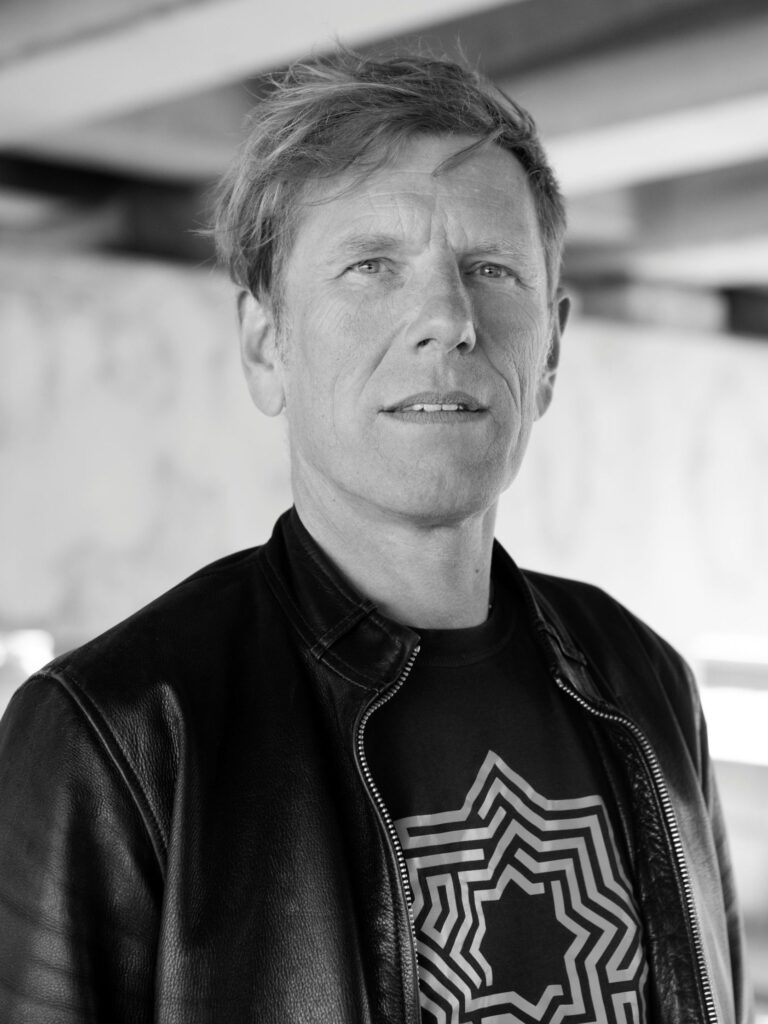
Associate Professor of Computer Science, Radboud University Nijmegen

Chief Privacy Officer, Ministry of Infrastructure and Water Management

Head of Unit Data Protection and Privacy, Ministry of Justice and Security
The Privacy Awards are co-sponsored by:
Become a sponsor of the Privacy Awards! Contact
Media partner:
Privacy First is an independent foundation with the aim of preserving and promoting the right to privacy.
Privacy First aims to hold organisations and business more directly accountable for their role by challenging them to contribute to a privacy-friendly Netherlands. In Privacy First's vision, privacy is the starting point of development and innovation.

